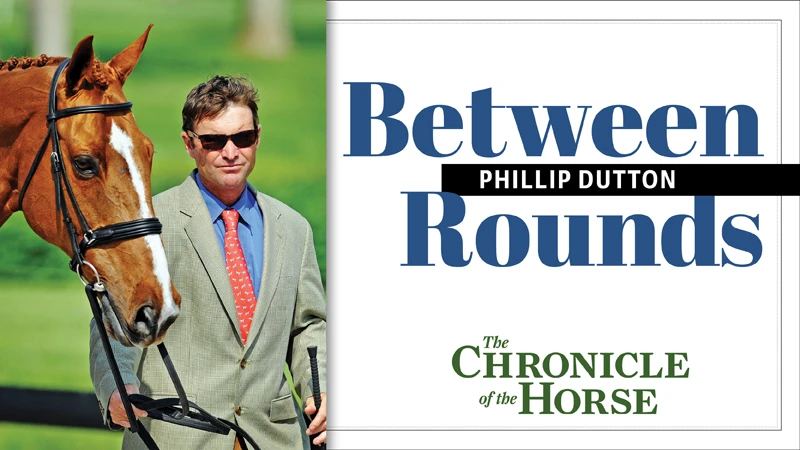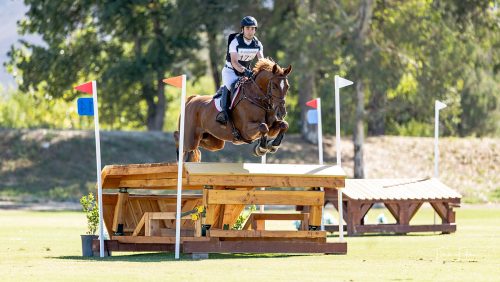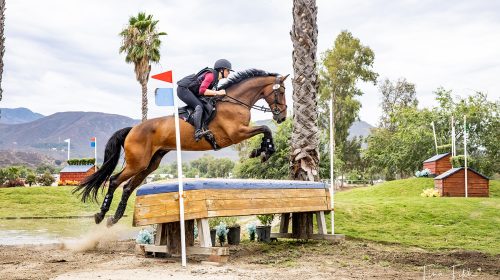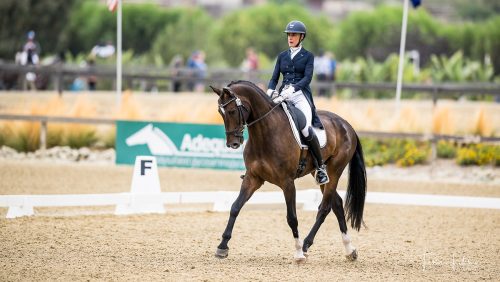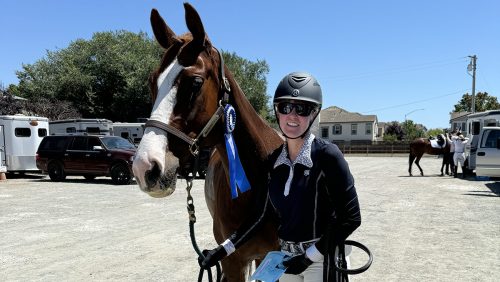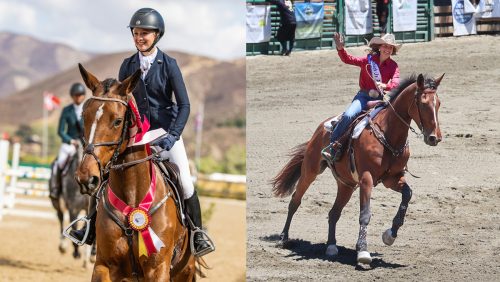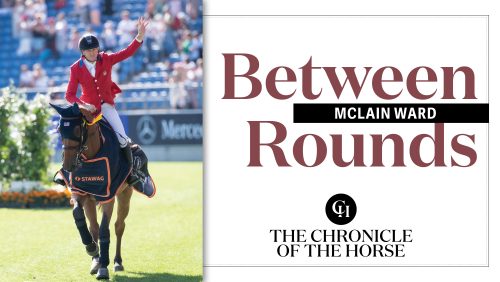After the positive results at Burghley and Blenheim, one of our top four-star riders sees a new attitude among elite eventers.
September was a productive month for U.S. eventing internationally. U.S. riders posted great results in England at the Land Rover Burghley CCI**** and at the SsangYong Blenheim CCI*** (see page 52).
Burghley is arguably the toughest four-star cross-country course in the world, and we had three riders in the top 12 standings (Lynn Symansky placed sixth with Donner, and Boyd Martin/Steady Eddie and Lauren Kieffer/Veronica finished 10th and 12th, respectively). The next weekend at Blenheim, which is one of the most prestigious three-stars, Kim Severson won for the United States on Cooley Cross Border.
A lot goes into great performances like these—years of training by horse and rider and support from a lot of different groups (owners, the U.S. Equestrian Federation, veterinarians, farriers, grooms, etc.). I do hope that David O’Connor, the most recent U.S. eventing coach, can feel some pride for the impact he has made on these results.
For me, the most exciting part of these performances is the way that the riders went about these competitions. They were gritty in the way they rode and competed. I believe “grit” is a common denominator in all great competitors, something that is very hard or near impossible to teach and must come from your heart and desire. Maybe this has been a little lacking in past performances by the U.S. eventers?
ADVERTISEMENT
Before Burghley, Lynn had ridden conservatively on Donner at their four-star events. However, at Burghley, I saw a much different intensity and determination in this partnership. Leading into Burghley, Steady Eddie hadn’t shown the form that would suggest he could end in the top 10, but Boyd found a way to get a great result at one of the world’s toughest events. Lauren Kieffer’s preparation with Veronica was far from ideal. A fall at Aachen (Germany) and 20 penalties on the cross-country at Hartpury (England), their last run before Burghley, is not what we would call a great lead up. However, Lauren was able to turn the past around to get into the top 12.
It’s hard to convey to someone who hasn’t been at this level the amount of pressure the rider is under before going into the cross-country start box at an event like Burghley. You realize you have to ride every single jump committed and accurate to give your horse any chance of jumping the jumps safely. Added to this, every second counts, and every extra yard you take on course is tiring for your horse. So, hats off to these three riders for their accomplishments at Burghley.
The next weekend, Kim Severson was able to win Blenheim after a lackluster spring, where she retired on cross-country at Rolex Kentucky and again at Tattersalls (Ireland). Again, plain old-fashioned grit came into play here. Kim took her future in her own hands and committed herself to getting her horse better and fitter for the cross-country—and the results showed! These four riders are a great example to other U.S. riders for the future.
Focusing On Cross-Country
The USEF High Performance program is in a transition stage until the new technical advisor is appointed. This has really put the emphasis and responsibility back on the riders to take charge of their own careers and performances. With this in mind, Joanie Morris, the U.S. eventing manager, along with a representative from the High Performance Committee and a representative from the U.S. Olympic Committee, met with each listed rider and asked the simple question: How can you be one of the best in the world, and how can the U.S. team help you get there? Obviously a lot more was discussed, but this was the gist of each meeting. This has really gotten riders thinking and taking responsibility for their own careers.
ADVERTISEMENT
Joanie Morris and Will Connell, USEF Director of Sport, have both done a great job of keeping the whole program positive and hungry. Joanie, in particular, has stepped up to fill the void until a new technical advisor is appointed, which the riders appreciate.
In the recent past, the U.S. Eventing Team has struggled with the cross-country at major championships. So there is a real push to make cross-country training, analysis and strategy our main priority. Ian Stark is helping with this in the short term and maybe will be a part of this going forward along with the technical advisor.
I, for one, am so impressed by the U.S. riders’ attitudes towards improving and understanding the challenges we face, and everyone seems very committed to getting back on the podium as a team. Accurate self-evaluation is the first step to improving. This is an ongoing process by most of our riders. It’s also important to stay focused with a clear view of the goal posts and not to be distracted or put off by every expert’s different opinions. There seem to be so many negative articles lately, especially from writers who weren’t able to succeed themselves at the four-star level in our sport. I hope all eventing supporters can unite and get behind our U.S. team riders so that we can achieve great things.
Finally, my advice to all of these riders with 2018 World Equestrian Games team aspirations is that: Four-star results are crucial. Winning and being competitive at other events shows you have the potential, but these competitions don’t really matter from a team perspective. For next year’s World Championships at Tryon, N.C., the cross-country is listed as a three-star, but it will certainly ride like a tough four-star course, and we have to be prepared for that challenge.
As we know, there aren’t many four-stars in the world. So when we as riders have the opportunity to compete at them, we need to be fully prepared in our training, fitness, mental readiness, etc., and be committed to ride with determination and grit, like Lynn, Boyd, Lauren and Kim did.
Phillip Dutton moved to the United States from Australia in 1991 and won two Olympic team gold medals for Australia before becoming a U.S. citizen in 2006. He’s represented the United States at the Pan American Games, winning a team gold medal in 2007, the Olympic Games and World Championships. He has been the U.S. Eventing Association Rider of the Year 12 times and was Fédération Equestre Internationale World Event Rider in 2005. He’s a founding member of the Eventing Riders Association North America (formerly the Professional Riders Organization) and has served on the U.S. Equestrian Federation Safety Committee and the USEF Board of Directors. He currently sits on the USEF Eventing Sport Committee. Also a top international coach, he lives in Avondale, Pa., and trains out of True Prospect Farm in West Grove, Pa., and Aiken, S.C.

